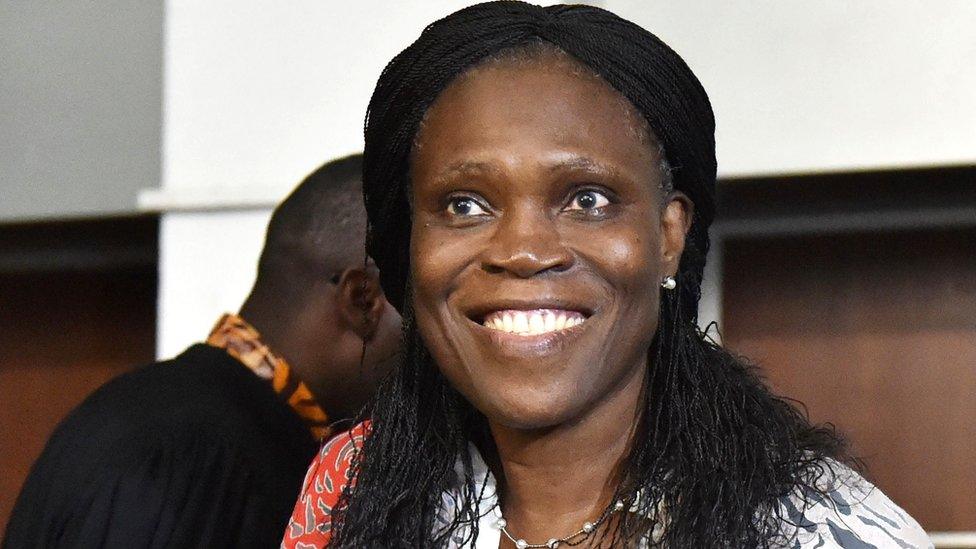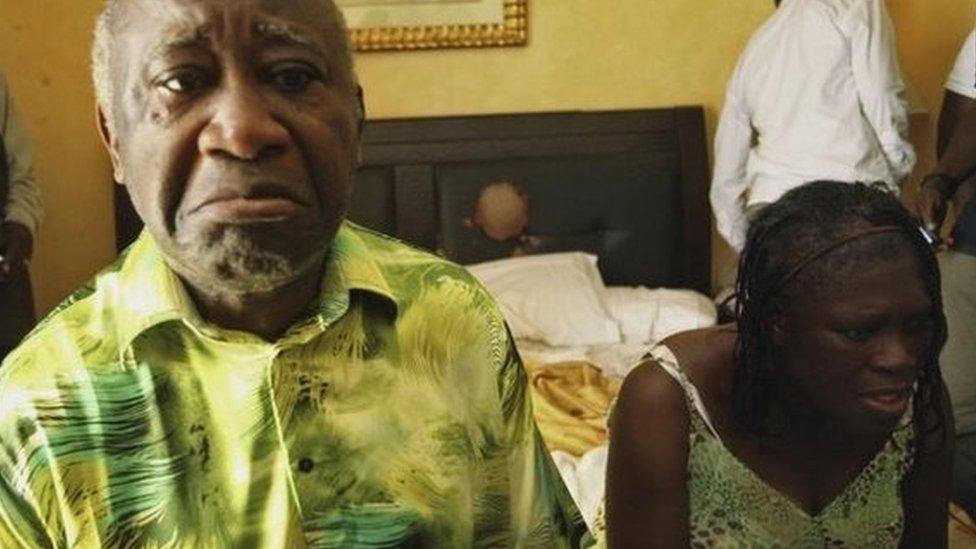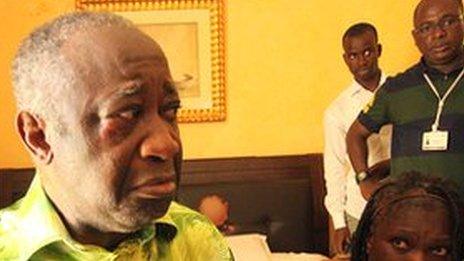Ivory Coast ex-first lady Simone Gbagbo granted amnesty
- Published

Simone Gbagbo was hiding in a bunker when she was arrested
Ivory Coast's jailed former first lady Simone Gbagbo has been granted amnesty by the president in what he says is a move to foster reconciliation.
In 2015, Mrs Gbagbo was sentenced to 20 years for her role in the violence that followed the 2010 elections in which more than 3,000 people died.
Her husband, Laurent Gbagbo, is on trial at the International Criminal Court for crimes against humanity.
Mrs Gbagbo was among 800 people that President Alassane Ouattara pardoned.
Speaking on state television, the president said that through the amnesty he wanted to bring about "peace and real reconciliation".
The violence in 2010 in Ivory Coast, the world's biggest cocoa producer, was sparked by Mr Gbagbo refusing to accept that he lost a disputed election run-off to Mr Ouattara.
Mr and Mrs Gbagbo were arrested in 2011 after troops stormed a bunker where the pair had taken refuge in the main city, Abidjan.
The former first lady was accused of "attempting to undermine the security of the state", disturbing public order and organising armed gangs.
She was also charged with crimes against humanity but was acquitted in a separate trial in 2017. That acquittal has since been overturned.
'Sceptical about president's move'
Mrs Gbagbo is still wanted by the International Criminal Court. It issued a warrant for her arrest in 2012 on charges of murder, rape and persecution.
The government refused to hand her over, saying she will be tried in Ivory Coast.

The Gbagbos were eventually captured in April 2011 after an assault supported by UN and French troops
The amnesty is being seen by some analysts as an attempt by the president to bolster his legacy ahead of the end of his second and final term in 2020.
But some question whether he has done enough to bring about reconciliation.
"This is one the main issues where [Mr Ouattara] has failed so far," Ivory Coast analyst Oumar Ba told the BBC's Newsday programme.
Mrs Gbagbo's daughter, Marie Antoinette Singleton, was also sceptical about the president's move.
"It cannot be about national reconciliation. It's been eight years and the government has not done much to get the people to reconcile," she told the BBC.
About 500 of those granted amnesty are already out of prison, President Ouattara said.
But it is not clear when the rest, including the former first lady, will be freed.
She and her husband have always maintained their innocence, saying the cases against them were political.
- Published15 January 2019
